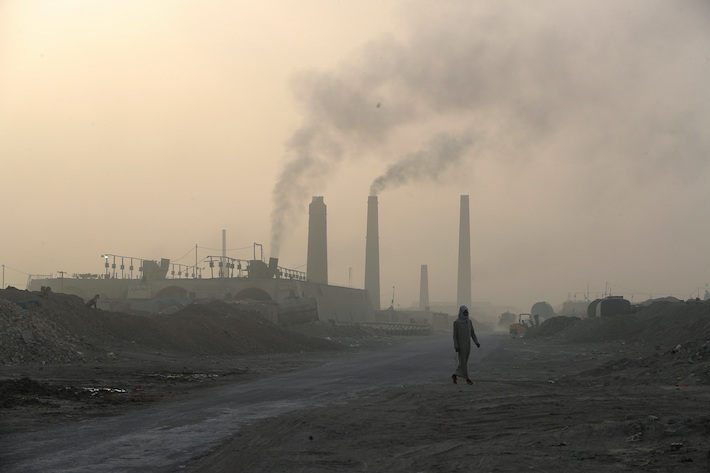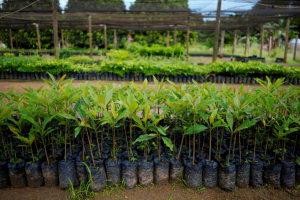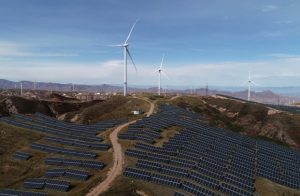A massive funding gap is endangering the future of global climate talks at a time when the world is facing the ‘catastrophic’ possibility of temperatures warming by more than 3 degrees Celsius by the end of the century.
The UN Framework Convention on Climate Change (UNFCCC) — the agency leading annual climate negotiations among nearly 200 countries — is short of at least $61.53 million for 2024, according to a Reuters report on Friday.
That amounts to nearly half of the funding the agency needs to coordinate international efforts to reduce climate-warming emissions and stage summits where countries can hold one another accountable.
Also on AF: Climate Change Has Cost China $32 Billion in Just One Quarter
That’s despite UNFCCC’s member countries already having signed off on the budget and their respective contributions.
The budget includes a core fund into which these countries are obligated to contribute, a supplementary fund drawing voluntary donations, and another voluntary fund to help diplomats from poorer countries attend UN climate negotiations.
The top two countries that are yet to deliver their pledged funding for the UNFCCC are, ironically, the two largest economies of the world — the United States and China. Both are also the world’s biggest emitters of greenhouse gases.
Despite that, as of October, the United States owes $7.9 million to the UNFCCC’s 2024 core budget, though it did contribute $2.7 million to its supplementary budget.
China, meanwhile, still owed $6.1 million to the core budget, aside from a contribution of $538,000 to the supplementary fund.
Officials in the United States and China told Reuters the countries would make their payments this year but did not specify when. State Department spokesperson Melvin Felix said the United States “still intends to provide a substantial contribution” to support the secretariat this year.
The Chinese foreign ministry said China “will fulfil its obligations as always.”
Worst-ever funding delays
But the budget shortfall has already forced the UNFCCC to curtail activities – from reducing operating hours at its headquarters in Bonn, Germany, to cancelling regional “climate week” events this year.
Those regional summits in countries such as Kenya and Malaysia last year raised billions of dollars in investment pledges from governments, investors and philanthropies for renewable energy, reforestation and other climate-focused projects.
The funding gap also threatens to undermine UN climate negotiations on trillions of dollars worth of climate finance.
The UNFCCC told Reuters it was facing a $2.2 million shortfall in the fund meant to pay for hundreds of diplomats to attend climate talks, including its COP29 summit next month in Baku, Azerbaijan.
Even if the US and China both meet their obligations this year, however, it would not be enough to cover the hole in the UNFCCC’s overall budget.
This year’s delays are by far the worst in UNFCCC history, in terms of the amount of the overall budget still missing, Reuters said.
‘Teetering on a planetary tightrope’
The funding woes are threatening climate talks at a time when the world faces the threat of warming as much as 3.1 degrees Celsius by 2100 due to complete inaction on managing emissions, according to a new UN report.
The UN Emissions Gap Report for 2024, released on Thursday, found that countries must start curbing emissions immediately. Without such action, the global goal of limiting rising temperatures below the 1.5C goal to cap rising “will soon be dead,” the UN said.
“We’re teetering on a planetary tightrope,” UN Secretary-General Antonio Guterres said in a speech on Thursday. “Either leaders bridge the emissions gap, or we plunge headlong into climate disaster”.
Governments in 2015 signed up to the Paris Agreement and a cap of 1.5C warming to prevent a cascade of dangerous impacts. The world has currently warmed by about 1.3C.
Despite that, however, the world made zero progress towards cutting emissions, the UN found.
Global greenhouse gas emissions rose by 1.3% between 2022 and 2023, to a new high of 57.1 gigatonnes of carbon dioxide equivalent, its report said.
Massive emission cuts needed
The report noted nations must collectively commit to and implement a cut of 42% on yearly greenhouse gas emissions by 2030, and reach 57% by 2035 for any hope of preventing warming beyond 1.5C — a target now seen as likely out of reach.
“The future of our planet is at stake… limit global warming to 1.5°C, struggle to adapt to 2°C, or face catastrophic consequences at 2.6°C and beyond,” the UN report said.
In light of the report the upcoming COP29 summit in Azerbaijan would be key as negotiations will likely help to inform each country’s updated emissions-cutting strategy.
Inger Andersen, executive director of the United Nations Environment Programme, urged countries to use the Baku talks “to increase action now” and “go all-out to get on a 1.5°C pathway.”
“Every fraction of a degree avoided counts in terms of lives saved, economies protected, damages avoided, biodiversity conserved and the ability to rapidly bring down any temperature overshoot,” she said.
- Reuters, with additional editing and inputs from Vishakha Saxena
Also read:
EV Shift to Have Far-Reaching Impact on Trade, Employment: IMF
At COP16, Officials Push to Align Nature And Climate Goals
Hundreds of Billions for Climate Change Seen as ‘Realistic Goal’
Scientists Fear Nature’s Carbon Sinks Are Failing – Guardian
Floods or Drought: Climate Change Worsens Global Water Woes
Climate Change ‘Fuelled’ Rain That Led to Fatal Indian Landslides
Energy Emissions Set to Peak But ‘Not in Time’ For Climate Goals























